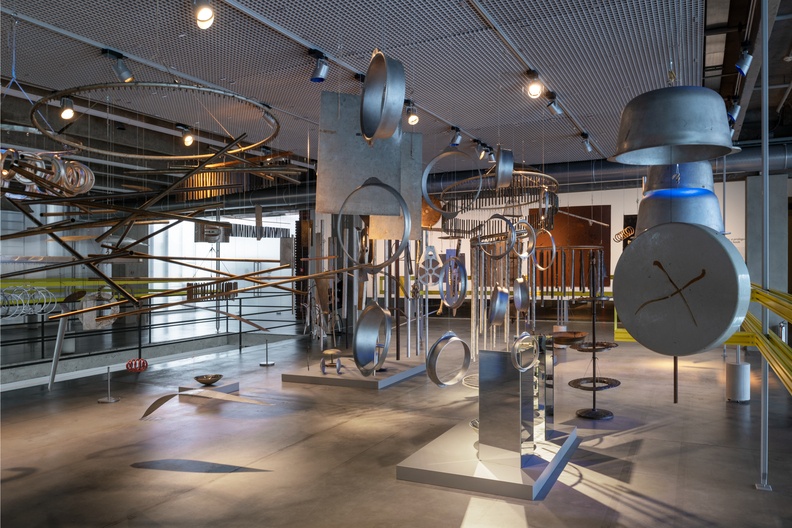BICAPO
German Vinogradov
German Vinogradov
Date

German Vinogradov (1957–2022) was an artist, musician, and creator of performances, photographic and video projects. He became an important figure in the history of Russian performance art due to his musical miracle-play happenings that featured his sound improv installation BICAPO, assembled from found metal pipes, tin sheets, everyday objects, and devices.
Vinogradov built the first version of the installation in the Detsky Sad squat in Moscow in 1985, later making one in his apartment in Zemlyanoi Val. His heirs have been posthumously showing BICAPO at various locations, each time assembling it based on the acoustic and visual characteristics of the particular space.
Speaking about BICAPO in 2017, German Vinogradov said: «The idea for it came to me when I was a second-year architecture student at the Institute of Land Management. I had been attracted to the sound of bells since I was a child and when I started making models of metal as a student I began listening in to the sounds. That’s how from an anticipation of yourself you come to something revolutionary, then things started flowing. I did not just invent this thing, I gave birth to it. It’s an entire world, a system, a fate; it’s a particular way of thinking and being in the world.»
The natural effortlessness of improvisation and organization of events (sometimes the audience waited for the emergence of the musical instrument assembled before their eyes for 30 or 40 minutes; other times, random passers-by became co-creators, when Vinogradov invited them to «come closer»), the visual everyday accessibility of Vinogradov’s artistic gesture combined with his life-organizing stance—present both in his late self-descriptions and in his ironic imitation of the rhetoric of the historical avant-garde—created a unique and magical mystery-play experience. It was essentially an experience of the mystery of the creation of beauty through lived spontaneity, with an artist who sometimes described himself as the founder of mystery-play art. «If music, culturally speaking, can work with imagination, then this kind of ‘music’ not only works with cultural perception but also with the subconscious, with depth, ” Vinogradov claimed.